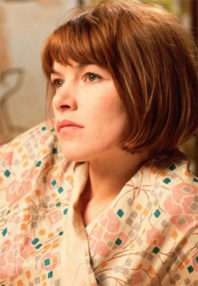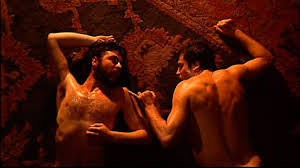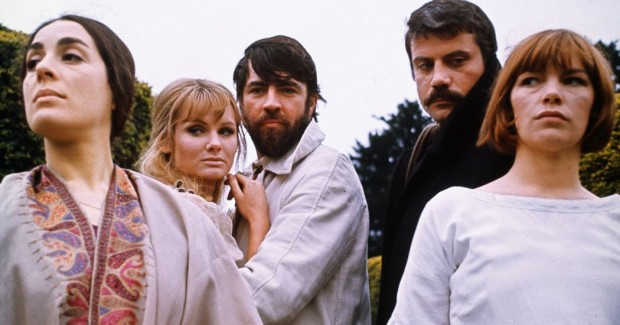
[amazon template=add to cart&asin=B0788XVV6B]
As the time changes, so do the passions of the populace…
With Women In Love, director Ken Russell boldly announced himself on the world stage as an auteur to be reckoned with as he takes the classic taboo shattering novel by D.H. Lawrence and allows it to unfurl in such a kaleidoscopic and truly unhinged way that allows us to embrace not only the repression of the time, but the passions that were bubbling just underneath it all.
Set in an English mining community on the cusp of modernity, we find ourselves tracing the shifting currents of desire that link the emancipated Brangwen sisters (Jamie Linden & Glenda Jackson) to a free thinking dreamer (Alan Bates) and a hard-willed industrialist (Oliver Reed), as well as the homoerotically charged friendship between the two men.
A well timed capper to the end of the sexual revolution, Women In Love allows the natural, animalistic passions and natures of human beings play out during a time when you simply aren’t supposed to have those kinds of feelings. Russell captures the electricity in the excitement and flat out confusion that plays out between these characters with sublime perfection. It’s the birth of proper society embracing its perversities and it’s fascinating to watch.
Originally a novel by D.H. Lawrence and working as a defacto sequel to his 1915 novel The Rainbow about the Brangwen sisters, this still manages to play as raw and as taboo as it did not only when Lawrence’s novel first hit shelves in 1920 but when this film was made in 1969.
This is seemingly the first film where Russell got to work without restrictions and let the full unbridled nature of his style fly across the screen for audiences. Very often straddling the line between surreal and straight ahead, Russell manages to get our heart rates going not through anything overtly titillating or naughty but through the sheer exploration of it all thanks to Lawrence’s words which were always meant to not only be alluring but also making clear the obviously destructive sides of the various passions that we all navigate as a part of our exploration of humanity. The script adaptation by Larry Kramer was very solid and with its lush musical accompaniment and cinematography the film never once felt like a straight ahead narrative that you had to examine and understand. Rather this is a film that you have to FEEL, and that’s what makes this so impressive from Russell’s part because he had to get his leads on board to do this as well, and they do it very well.
As an actor Oliver Reed always felt like someone whose emotions and the very core of his being were always simmering on the surface just waiting to erupt and that works so well here in this film. As the industrialist and businessman Gerald Crich his character is the embodiment of how you’re ‘supposed’ to act in proper society not letting his unbridled emotions get the better of him, but rather the exact opposite happens. This is not a man in love; he is a man in lust, not only for the women in his life but for his friend, played masterfully by Alan Bates. Both men lived in a world where they knew how they were supposed to behave, but advanced enough both intellectually and emotionally to know that at the very least it’s OK to question the status quo. With both Jennie Linden and the transcendent Glenda Jackson (who did win an Oscar for this performance) we get a truly complex look at the nature of sexuality and how it can genuinely get away from people, like these four who just aren’t necessarily ready to truly explore it as it either destroys or defeats them all in one way or another.
The Blu-Ray looks great as it is a newly restored 4K digital master and the special features include two feature length commentary tracks featuring director Ken Russell and screenwriter Larry Kramer. There are segments from a 2007 interview for the BAFTA Los Angeles Heritage Archive, A British Picture, and Portrait of an Enfant Terrible, Russell’s 1989 biopic on his own life and career which is worth the price of the Blu-Ray alone on any other day. An interview with Glenda Jackson from 1976 and interviews with Kramer and Alan Bates from the set, there’s also new interviews with cinematographer Billy Williams and editor Michael Bradsell. There’s also Second Best; a 1972 short based on a D.H. Lawrence that was produced by and stars Alan Bates along with the original theatrical trailer and an essay from Scholar Linda Ruth Williams.
Ultimately, Women In Love is a seminal piece of cinema because while Ken Russell may have been working quite regularly before this film, it really marks the beginning of his peak period as you could tell the shackles were finally off him and he got to evolve from working studio director to genuine cinematic auteur.
[amazon template=thumbnail&asin=B0788XVV6B]
- Release Date: 3/27/2018


